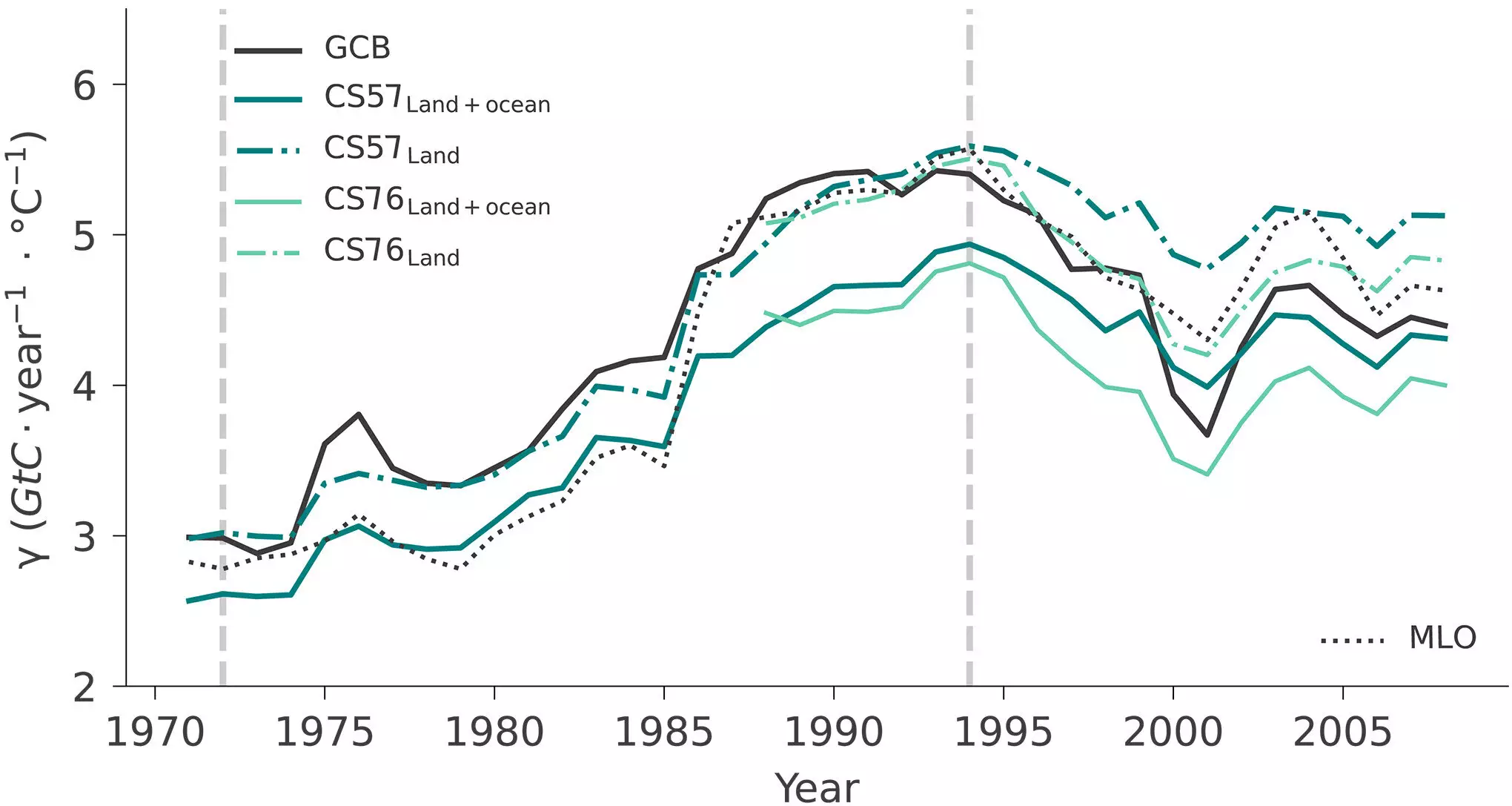Recent research has sparked a pivotal reevaluation of the intricate relationship between atmospheric CO₂ levels and tropical temperatures. For several decades, a prevailing narrative held that rising CO₂ concentrations were primarily driven by global temperature increases, particularly in tropical regions. However, a groundbreaking study conducted by scientists at the Max Planck Institute for Biogeochemistry and Leipzig University suggests that the dynamics of this relationship may be more complex than previously understood. Their findings emphasize the significant impact of rare yet powerful El Niño events, which have considerable implications for how we interpret climate data and model future scenarios.
Over the years, from 1959 to 2011, observed patterns indicate an increased sensitivity of CO₂ levels to tropical temperatures—specifically doubling—compared to earlier periods. Previous assumptions attributed this phenomenon to escalating droughts and systemic changes in the carbon cycle driven by climate change. Contrarily, the researchers argue that this elevated sensitivity can largely be credited to the occurrence of major El Niño events, particularly those during the 1980s and 1990s, such as the notorious El Niños of 1982/83 and 1997/98. These events are notorious for triggering severe weather conditions, which lead to droughts and heatwaves that inhibit plant growth and reduce the capacity of terrestrial ecosystems to absorb carbon.
El Niño events create conditions that not only diminish plant biomass but also lead to significant carbon emissions during periods of stress. In extreme cases like those seen in strong El Niño years, vegetation can release vast amounts of CO₂, resulting in a net increase in atmospheric carbon instead of a sequestering decline. This dynamic has been referred to by the study’s authors as “slow-in, fast-out” behavior of the carbon cycle. Essentially, carbon is slowly captured and stored over time, but under the duress of extreme climate events, it can be abruptly released back into the atmosphere.
The study’s findings hold significant implications for climate modeling and future projections. The historical presumption that the tropical sensitivity to CO₂ was indicative of long-term changes in the carbon cycle—presumably escalating due to climate change—has been challenged. Instead, what the Max Planck Institute team emphasizes is that fluctuations triggered by extreme climate events like El Niño may lead to temporary spikes in CO₂ that do not necessarily signify a long-lasting alteration in carbon dynamics.
This reevaluation is critical for developing accurate climate models, particularly as the world continues to face increasing climatic instability. As Dr. Sebastian Sippel, a junior professor involved in the research, notes, a more granular understanding of how El Niño and similar events influence carbon dynamics is necessary to create reliable climate forecasts.
Ultimately, the research underscores the complexity of ecological systems and the challenges they pose for our understanding of climate change. It illustrates that significant shifts in atmospheric CO₂ levels may not always stem from persistent climate trends, but rather episodic external factors, particularly in a volatile climate context. As we forge ahead, policymakers and scientists must consider these dynamics diligently when developing climate strategies and policies. Understanding the nuances of how ecosystems respond to both gradual and abrupt climatic changes will be vital for predicting future climate scenarios and implementing effective actions to combat the growing threat of global warming. The insights gained from this study represent a critical leap toward grasping the full scope of the environmental challenges we face and highlight the need for continued research in the evolving field of climate science.


Leave a Reply